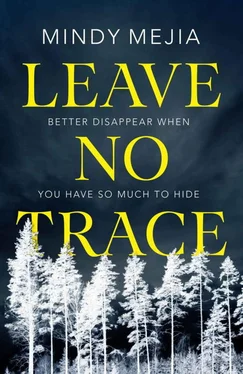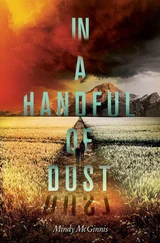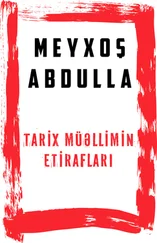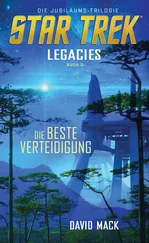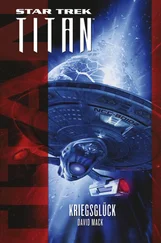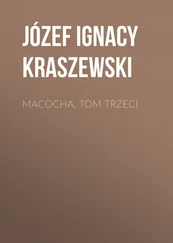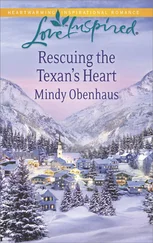Lucas meant ‘illumination,’ ‘light-giving,’ and there was nothing more clear than the first time Josiah held his son and stared into his own eyes. Only a few moments in life have the power to unmake a man, and cradling that raw, barely formed human was Josiah’s first. He fell in love, and it was terrifying.
The next years were the happiest and the hardest. Josiah worked as much as he could, stockpiling money for some vague future debt whose shadow seemed to loom infinitely larger every month. They learned about car seats and that back is best, breast is best, the five s’s, and all the other hundreds of slogans and campaigns thrust into their lives by American baby culture. Ignoring as much of it as they could, they bought an infant life vest instead of a crib monitor and took Lucas down his first river at three months old. And Lucas was light-giving. He played games with his own shadow, entertained himself with bugs for hours, and scaled out of his crib to squirm his way in between his parents every morning before dawn so they could watch the sunrise together. Still, they couldn’t entirely escape the tedium and the rules. At Lucas’s first kindergarten conference they were admonished by the teacher that he should have been more socialized; Lucas looked at the other children like they were aliens and refused to stand quietly in line. Josiah laughed off her shaming, but it ate at Sarah the whole way home from the conference. She tucked Lucas into bed and stalked back to their living room, raging at the teacher with the assembly-line attitude, ripping up the conference papers, and when she whirled to hurl them at the trashcan – a blazing tornado of ringleted fury – an aneurysm burst in the frontal lobe of her brain and she fell backward, eyes open and staring at the cracked plaster of their ceiling.
That was the other moment. The worst moment. It was a strange thing to be thirty-two years old and know beyond all doubt you’d already experienced the highest and lowest points of your life.
When Josiah looked back on it later, from the lonely mouth of a forgotten river, he understood the price of Sarah’s love. His foster mother had warned him, but he hadn’t grasped at the time, with her penny-pinching ways, that cost meant more than money. Sometimes cost meant being carved down with grief. It meant fighting with the hospital to release Sarah’s remains to him because he wasn’t a legal relative and when they finally did, it meant lying awake at night wondering if she’d wanted to get married, if he’d made her sacrifice any portion of her infuriatingly finite happiness. Cost meant leaving Iowa City because he couldn’t face playing with Lucas in the parks or walking the pedestrian mall without Sarah. Her love weighed down the air, made it almost impossible to push in and out of his lungs, so they moved. And for the rest of his life, Josiah never kayaked again.
Nothing in this world is free, his foster mother said. You just haven’t found out what it’s gonna cost yet.
Lucas was his last, greatest gift and he was prepared to pay anything, to forfeit the entire world and everything in it to keep his son safe. They drifted from town to town, staying in one place for the school year but packing up as soon as the last day let out in June and disappearing into the wild. Zion, Yosemite, the Sawtooth mountains, the Grand Canyon. All his savings made sense now, they paid for the summers spent gazing at sunsets and exploring the craters of ancient volcanoes. Josiah taught him survival; it was all for Lucas now, everything he’d ever learned for this one giggling, scampering reason. Lucas could build a fire at eight years old and fillet his own fish to cook over it. He hoarded maps and began campaigning for their summer destinations as soon as Christmas was over, which they usually spent in a snow-packed tent somewhere near the latest rental. When they were camping, Lucas didn’t wake in a cold sweat crying for his mother. They talked about her over the campfire, Josiah grafting his memories onto Lucas’s fading ones, and always found sites near the water where she would’ve wanted to be.
There were women, a whole new breed who saw ‘single father’ as another asset in an already impressive list of attributes. They slipped their phone numbers to him with restaurant bills and at the laundromat, their eyes smug with intent. He hated them almost as much as he hated himself for being tempted. For wanting to betray Sarah’s love. One woman asked him to come look at her Honda and, when he came to her house, slid her hand up his arm and inquired how much more he charged for extra services. He ripped the radiator hose out of her car and left her screaming in her driveway.
After a summer spent in the Badlands they drove all the way up to Ely, a weathered cluster of stores and houses where the road ended at the edge of Minnesota. The town was surrounded by green – national forests, state parks, and a place called the Boundary Waters Canoe Area Wilderness that intrigued by its very name. The Boundary Waters, a boundary between countries, between worlds, dividing the life he’d had with Sarah and the one that had called to him from dark horizons since he was a child.
He found an advertisement in the Ely paper to sublet half of a duplex and drove their truck full of camping supplies and tools to a house with peeling paint and a patchy, dandelion-strewn lawn. The woman who answered the door was bone-thin with crocodile teeth and sharp, hungry eyes.
‘Yes?’ Her glance measured up Josiah, Lucas, and the truck behind them, loaded with everything they owned in the world.
‘We called about the apartment.’
‘Right. It’s your lucky day.’ The rusting hinges shrieked as Heather Price opened the door wider. ‘There’s a special right now – first month free.’
‘NOW THAT WAS a half an hour well spent.’
As Officer Keisha Miller and I badged out, most of the eyes in ward two followed our every move. The normal fights over the TV had stopped, hands twitched, and several heads had sunk behind the protective barrier of the couches.
‘It wasn’t my idea.’ I’d advised Dr Mehta that Lucas wouldn’t talk to the police, but pressure from the Duluth PD and the US Forest Service had become intense, so we agreed to facilitate ‘an interview’ with Lucas. Officer Miller, our liaison police officer, had asked question after question while Lucas clenched his fists and stared out the window. ‘He’s not ready to talk to the authorities.’
I inched her toward the stairs as she methodically folded up the Boundary Waters maps and shook her head. ‘Got a giant F U plastered to his forehead, if you ask me.’
‘He’s a forensic mental health patient.’ Three more of them were peering through the door of the ward, tracking the receding flash of the officer’s tie clip and badge.
‘I just recorded thirty minutes of me talking to a wall. The chief said they’re desperate for leads and what am I going to give him? The most I’ve done today is chase two groupies off the property.’
‘They got inside the gate?’
‘Don’t ask me how. Both of them were carrying “Free Lucas Blackthorn” signs, which is the first time I’ve seen that. We’ve gone from interest to protest and now I’m clocking more time cruising the perimeter of this place than actually inside it.’ Officer Miller’s shoes echoed in the stairwell as we descended to the first floor. Next to her, my tread was almost silent. We badged into the main hall and toward the front entrance, where shards of sunlight sliced the walls.
‘I need a favor.’
‘There were more of them this morning.’ She nodded past the doors into the parking lot and beyond. ‘He wants out and they want in.’
Читать дальше
